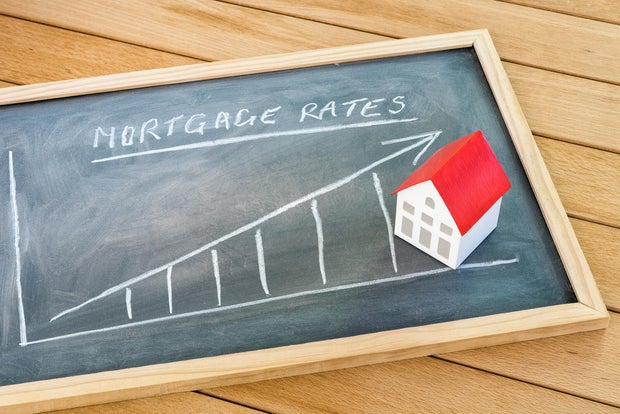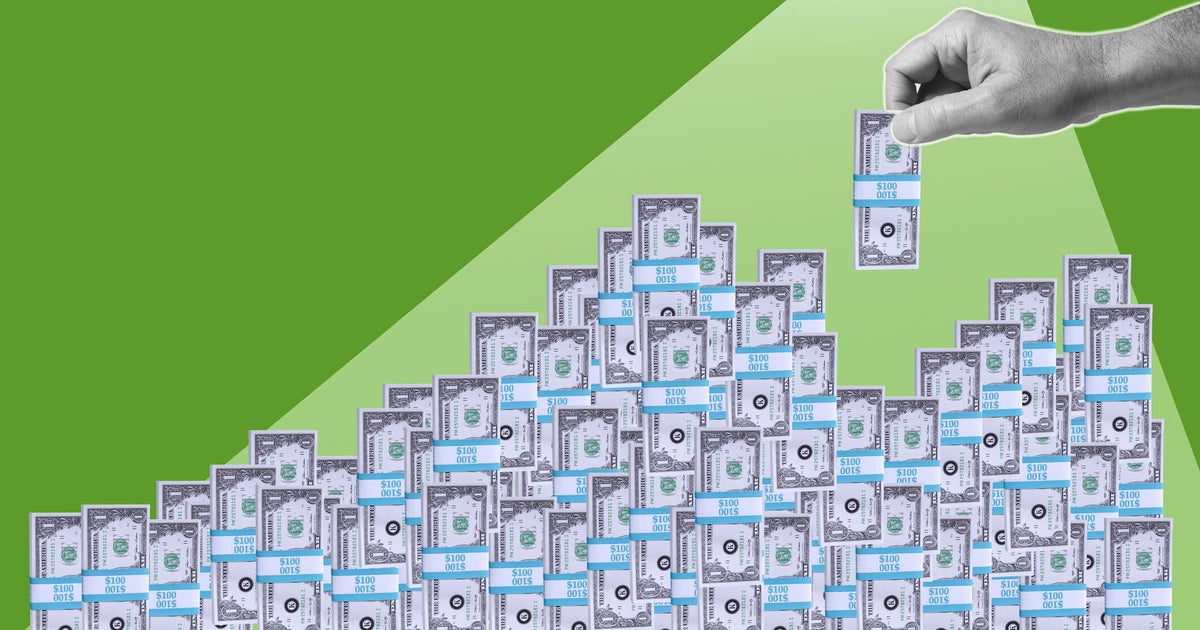 There could be shifts to mortgage rates this summer, experts say, but multiple factors could have an impact.
Getty Images/iStockphoto
There could be shifts to mortgage rates this summer, experts say, but multiple factors could have an impact.
Getty Images/iStockphoto
While inflation has declined from its recent peak, today's inflation rate is still higher than the Federal Reserve's 2% target, leaving the Fed to maintain its careful approach to the rate environment. Mortgage rates, in turn, have hovered in the high 6% range, keeping many prospective homebuyers out of the market.
So, as we head into summer, the big question is: Will the mortgage rate climate change? Economic reports on inflation, employment and consumer spending will help determine whether borrowing costs finally ease or remain elevated through the warmer months.
To help you understand what might happen, we asked home lending experts to outline three possible mortgage rate scenarios. Here's what they want you to know.
Compare the mortgage rates you could qualify for online now.
3 mortgage interest rate scenarios lenders say are possible this summerWhile mortgage rates could change over time, industry professionals generally don't foresee dramatic mortgage rate swings this summer.
"Unless we get a clear break in labor or inflation unexpectedly cools, we'll stay in this frustrating middle ground, hovering around 6.875% to 7.125%," says Nicole Rueth, Denver Metro Association of Realtors market trends committee member founder of The Rueth Team.
Mortgage lender loanDepot's sales manager, Debbie Calixto, agrees that major changes are unlikely.
"There may be minor fluctuations," Calixto says. "[But] unless there's a significant shift in the broader economic environment, mortgage rates are likely to remain stable in the high 6% range."
The most optimistic prediction comes from Steven Glick, director of mortgage sales at real estate investment fintech company HomeAbroad. He sees potential for a modest decline, with 30-year fixed mortgage rates potentially averaging around 6.6% by August.
While the outlook is for limited movement, certain economic triggers may push rates in different directions. Here are three scenarios we could see play out:
Mortgage interest rates could remain the sameFor mortgage interest rates to remain the same, we would need economic conditions to stay roughly where they are, experts say.
"Slight market and economic fluctuations can occur, as long as there are no major developments that push things in either a positive or negative direction," Phil Crescenzo Jr., vice president of the Southeast Division of Nation One Mortgage Corporation, explains.
Rueth breaks down what this looks like in practice.
"If inflation drifts sideways, the job market stays soft-but-not-broken and the Fed keeps waiting for clarity, mortgage rates won't have a reason to move meaningfully," Rueth says.
The bond market thrives on conviction. Without clear signals pushing rates in either direction, they're likely to hold steady.
Assuming this scenario plays out, experts recommend focusing on other variables you can control. For example, you might negotiate rate buydowns, seller concessions or explore different loan programs to save money when buying a home.
Find out how affordable the right mortgage loan could be today.
Mortgage interest rates could riseFor mortgage interest rates to rise, we'd need to see several economic shifts occur, experts say. The following developments could trigger higher rates this summer, according to Glick:
Inflation jumps above 3%, driven by rising costs for energy, housing or everyday goods.The economy grows too fast, with unemployment dropping below 4%, or gross domestic product (GDP) growth exceeding 3.5%.The 10-year Treasury yield rises to 4.7% or higher as investors worry about inflation or government spending."Inflation spikes or robust growth would spook bond markets, pushing Treasury yields up," Glick warns.
For homebuyers, this would mean higher monthly payments and reduced purchasing power in an already challenging market.
If you see these economic shifts begin to materialize, it might make sense to lock in your rate before conditions worsen.
Mortgage interest rates could declineFor mortgage interest rates to decline, the economy must show signs of cooling.
"We'd need a real pivot moment — like a clear, sustained drop in inflation or a crack in employment that forces the Fed to cut sooner than expected," Rueth says. Weak economic reports this summer could provide that catalyst.
"A cooling economy or softer labor market reduces inflationary pressure, prompting the Fed to cut rates," says Glick. "This would [bring down] Treasury yields, and mortgage rates follow suit."
Should rates begin to fall, it's smart to expect increased competition as sidelined buyers quickly return to the market. This could mean a return to bidding wars and rising home prices, offsetting some of the savings from lower mortgage rates.
The bottom lineWhile notable mortgage rate changes are unlikely this summer, other scenarios could still unfold. Trying to time the market perfectly is difficult and counterproductive, though.
"More often than not, this leads to missed opportunities," cautions Calixto.
Today's real estate market offers advantages that weren't available during recent frenzied buying periods: less competition and more negotiating power. So if a home aligns with your budget and needs, consult a mortgage lender to lock in a rate soon. And, remember that while rates might drop, home prices likely won't.
"Every month you wait is another month of someone else's equity growing instead of yours," Rueth says.
Sharon Wu



